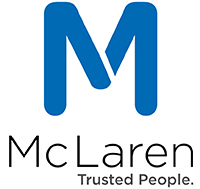We’ve just celebrated our 29th anniversary of helping people find the right job. So we thought it would be the perfect time to share the love and let you in on some of the emerging recruitment trends for 2018 … to help you find your dream job!
Salaries are on the rise
What you need to know:
Over the last 12 months, salaries across the board have risen – including a 1.5% increase in the not-for-profit sector. If you’re considering a job change, or haven’t seen much movement with your own pay-packet lately, now might be time to see what else is out there.
What you should do:
- If your current employer won’t budge on your salary: start researching organisations that you would like to work for and get in touch with your friendly recruitment consultancy!
- Brush up your CV and interviewing skills!
It’s a tight candidate market
What you need to know:
We are currently seeing fewer quality job applications for each role, which means there’s greater competition for good candidates. There is also a lot more activity from recruitment consultants and hiring managers making direct approaches to potential candidates – many who are not actively looking.
What you should do:
- If you are open to being approached about a new job opportunity, make sure your LinkedIn profile is up to date and your most recent CV is available on Seek. If you don’t have a Seek account, now’s the time to set one up!
- Make sure your contact details are correct, across the board.
- If you are actively looking: be proactive! Get in touch with recruitment agencies to find out what opportunities are currently available and what sectors are actively looking for candidates.
Artificial Intelligence (AI) is here to help
What you need to know:
AI is increasingly playing a big part in the initial screening of job applications, where specifically designed programmes look for ideal candidates based on the content in their CV and cover letter. These programmes are commonly used for the first round of candidate screening, so if the AI system has trouble finding the right words or content in your CV or cover letter, your application might not make it through for people to see!
What you should do:
- Submit your CV and cover letter as a Word document. PDF’s look great, but AI systems have trouble picking out the relevant information from them, which could result in your application being overlooked.
- For each job application, revise your CV and cover letter to ensure keywords from the Job Description (and any supporting material) are included in your submission.
Cover letters are important
What you need to know:
Cover letters may be a contentious topic but feedback from our clients says that cover letters play a big part in how successful your application is. Communication style, attention to detail, ability to follow instructions, and genuine interest in the role can all be gauged from a cover letter.
What you should do:
- Always include a cover letter with your application!
- Make sure your cover letter is addressed to the right person and is tailored to the job you’re applying for. If you’re not sure what you should be including: here’s a helpful link.
Video applications and interviews are on the rise
What you need to know:
The use of video in recruitment is becoming more common – both as a way of applying for a role and also for being interviewed.
What you should do:
- If it’s appropriate for the position, think about submitting a video that will help you stand out from the crowd – alongside your CV and cover letter.
- Get comfortable speaking to camera – practice definitely makes perfect. And remember to look into the camera, not at the screen.
- Always use a quiet place – and always check what’s in the background!
Workplace diversity and inclusion makes a big difference!
What you need to know:
An organisation that makes diversity and inclusion a priority is a good place to be! People are actively moving to organisations with strong values – ones that care about their employees.
What you should do:
- Do your research! Ask your current employer what their policy on diversity and inclusion is. Ask your recruitment consultant about a prospective employer’s reputation before you sign on the dotted line.
Changes to your entitlements
What you need to know:
As an employee, you should always know what you’re entitled to!
From July this year, paid parental leave will be increasing. Starting in April, the minimum wage went up to $16.50 per hour. And the 90 day trial period for new staff may soon only apply to organisations with less than 20 staff.
What you should do:
- Keep up to date with the coming changes by checking online, speaking to your HR team (if you have one) or by getting in touch with your recruitment agency.
- Make sure you read any employment contract carefully. And if there’s anything you’re unsure about, get some independent advice.
That’s a lot to take in but our team can help you every step of the way; from application advice through to interview prep and contract negotiations. Also keep an eye out for our regular blog, which is full of helpful advice on navigating the recruitment world. And if you’re ready to see what opportunities are out there for you, jump onto our vacancies page or get in touch!
Best wishes,
Kirsty and Nikki


Leave a Reply